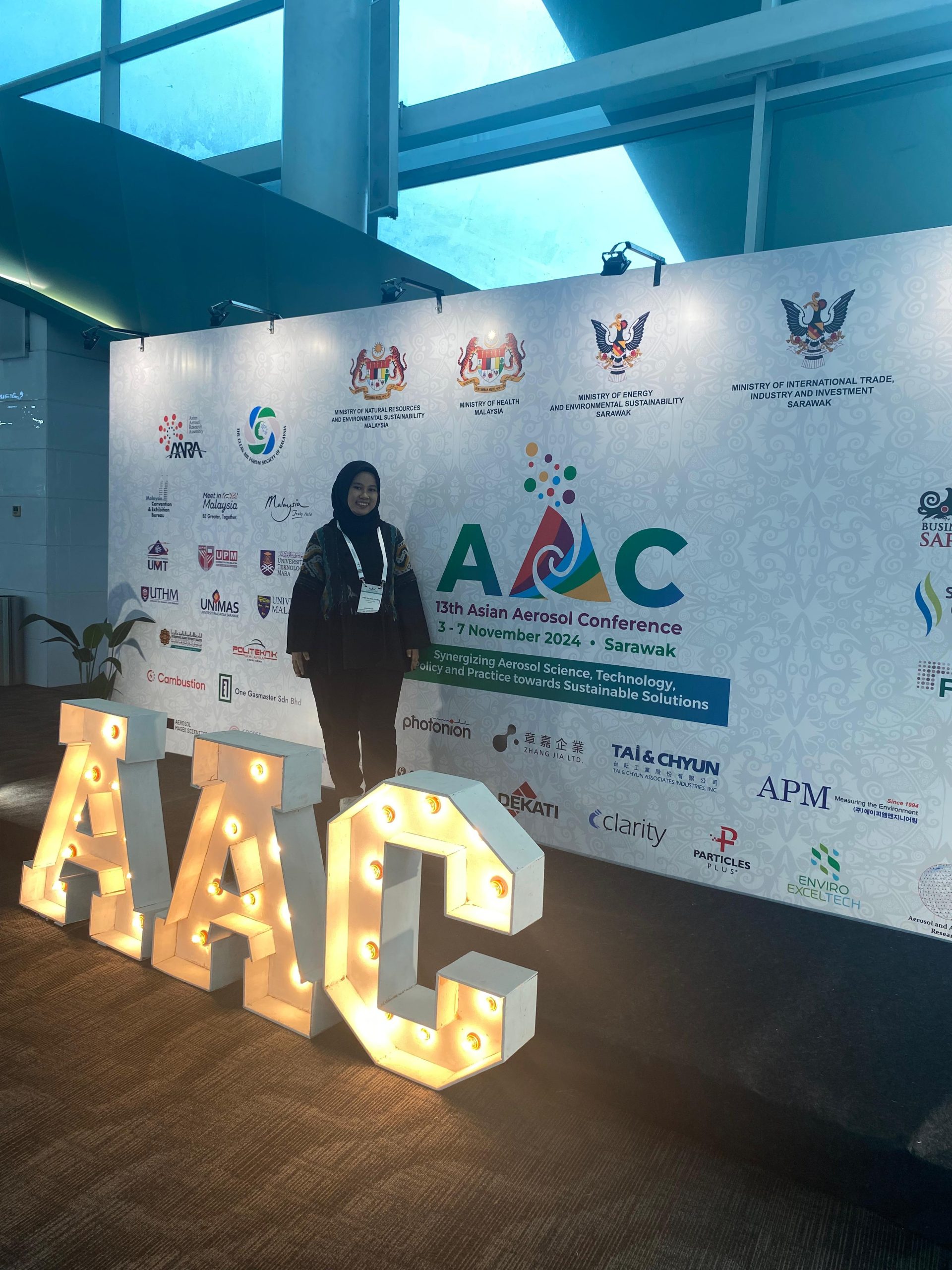Cindy Patricia Yosika, a student of the Bachelor’s Program in Occupational Health and Safety (OHS) at the Faculty of Public Health (FPH) of the Universitas Indonesia (UI), class of 2020, has won the Travel Grant Award to attend the Asian Aerosol Conference (AAC) from November 3-7, 2024, at the Borneo Convention Center Kuching (BCCK), Sarawak, Malaysia. This achievement allows Cindy, an undergraduate student, to participate in a conference typically reserved for graduate students. The conference serves as a platform for researchers and academics from around the world to share their findings related to aerosols, aerosol technologies, and their effects on health.
Initially focused on preparing the framework for her thesis under the guidance of Prof. Doni Hikmat Ramdhan, S.K.M., M.K.K.K., Ph.D., Cindy learned about the conference and discussed the opportunity with Prof. Doni, deciding to apply. She recognized that this opportunity would expand her knowledge and provide valuable experience in the research world. “Alhamdulillah, I was selected to give an oral presentation and also received a travel grant, which is a great motivation for me to keep moving forward,” said Cindy.
Cindy’s research focuses on “The Effectiveness of HEPA Filters and N95 Mask Filters in Reducing PM 2.5 in Vehicle Testing Areas.” This study highlights the effectiveness of air filtration in environments vulnerable to small particle exposure. Aerosols are widely dispersed, particularly in vehicle emission testing areas. “If aerosols are left unfiltered, harmful particles will continue to circulate in the room, posing potential health risks,” Cindy explained. She used a fan combined with a filter to evaluate its effectiveness in reducing harmful airborne particles. The results showed that the combination of filters she developed had an effectiveness almost equivalent to that of a commercial air purifier, presenting a potential solution at a lower cost.
The effectiveness of this method depends on several environmental factors such as air temperature and humidity. Without additional filtering tools, aerosol particles tend to become trapped and continue circulating in the room, increasing the risk of exposure. In addition to adjusting working hours and using personal protective equipment (PPE), using a fan combined with a filter contributes to further reducing aerosol concentrations. While air purifiers still perform optimally, the difference in effectiveness with this combined filter approach is minimal, making this combination of tools an effective alternative.
Attending the Asian Aerosol Conference is a valuable opportunity for Cindy to broaden her horizons and build connections with academics from various fields. Cindy emphasized that the event is not only about scientific presentations but also an opportunity to enrich herself with new perspectives and stimulate innovation in environmental health. “My biggest expectation is to expand my network, gain new insights, and foster curiosity,” Cindy said. “Interacting with experienced people in the field motivates me to keep learning and developing. Although there are challenges, such as the lack of research on aerosol filtration, this becomes an opportunity to create new and beneficial solutions,” she added.
Additionally, a significant challenge Cindy faced was designing the filtration device independently. The main focus of her OHS studies is on analysis and evaluation, but Cindy went further by designing the filtration device for her research. She successfully overcame this challenge with the support of the OHS facilities at FPH UI and assistance from her laboratory colleagues. “I saw this challenge as an opportunity to grow. Although designing a technical device is not the primary focus of K3 students, I gained more confidence in this experiment thanks to the available facilities, guidance from Prof. Doni, and support from my friends,” Cindy said.
Cindy acknowledged that FPH UI and her academic advisor, Prof. Doni, played a crucial role in her academic development. She also shared her time management strategies for completing academic assignments while preparing for an international conference. “The key is to complete academic tasks well. After that, preparing the material for the conference becomes easier because it is aligned with the research I’m conducting.” In closing, Cindy expressed, “Never limit yourself when it comes to research, even if it seems unfamiliar. As long as there is willpower, anything is possible. It’s better to regret trying than to regret never having dared to try. Don’t be afraid to make mistakes; everyone has their own time to learn from them.” (DFD)

